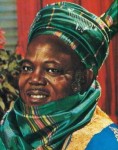
Bello, Ahmadu
1910–1966 Premier of Northern Nigeria Ahmadu Bello, a Nigerian leader, served as the first premier of Northern NIGERIA in 1954, when the country was under British rule. He was active in the Northern People's Congress (NPC), a cultural organization that he helped transform into a political party in the early 1950s. Under Bello's leadership, Northern Nigeria and the NPC […]
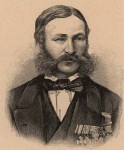
Barth, Heinrich
1821–1865 German traveler and explorer Heinrich Barth was a German-born scholar who made two long trips to Africa that he recorded in a book called Travels and Discoveries in North and Central Africa. Barth's extensive knowledge of the peoples and places described in his book made it a standard reference for scholars of Africa. Barth was educated in Berlin, […]
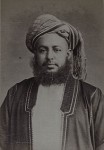
Barghash ibn Sa’id
1833(?)–1888 Sultan of Zanzibar Sultan Barghash ibn Sa'id ruled ZANZIBAR from 1870 until his death in 1888. He was a reformer who tried to eliminate corruption and to improve the economy of Zanzibar. Barghash rebuilt the clove economy after it was destroyed by a hurricane in 1872. Later he established a fleet of steamships that boosted the country's trade […]
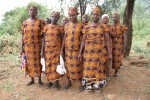
Bantu Peoples
The Bantu, a large group of related peoples, originated along what is now the border between NIGERIA and CAMEROON and spread throughout central and southern Africa. The term Bantu is sometimes used to describe all Africans and African culture in general. But this use of the term is inaccurate; Bantu peoples make up only about a third of Africa's population. […]
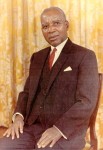
Banda, Ngwazi Hastings Kamuzu
1898–1997 President of Malawi Dr. Hastings Kamuzu Banda served as president of MALAWI from 1966 to 1994. His presidency was a time of one-party rule. Born in the British colony of Nyasaland (present-day Malawi), Banda left home at age 17 to study in SOUTH AFRICA. Later he traveled to the United States, where he attended college and medical school. […]
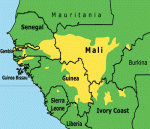
Bambara
With a population estimated at 3 million, the Bambara are the largest ethnic group in MALI. Large numbers of them live in northern IVORY COAST as well. They are sometimes called Bamana, the name of the Mande language they speak. In the 1700s two Bambara kingdoms arose in the region, but they fell to Muslim forces during the 1800s. […]
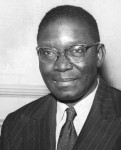
Azikiwe, Benjamin Nnamdi
1904–1996 President of Nigeria Benjamin Nnamdi Azikiwe was the first president of the Federal Republic of NIGERIA, after the country won its independence from Britain in 1960. As a young man, Azikiwe left Nigeria to study in the United States. He earned master's degrees in both political science and anthropology. After his studies, he worked for three years as […]
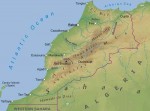
Atlas Mountains
The Atlas Mountains are the principal geographic feature of the North African countries of MOROCCO, ALGERIA, and TUNISIA. They are made up of six mountain ranges—the Anti-Atlas, the High Atlas, the Middle Atlas, the Saharan Atlas, the Tell Atlas, and the Aures—with high plateaus and plains between them. The mountains run northeast from the Atlantic coast of Morocco to the […]

Asma’u, Nana
1793–1864 Islamic poet and teacher Nana Asma'u, an Islamic teacher in what is now northern Nigeria, was known for her writings and for her work in educating Muslim women. Fluent in Arabic and several African languages, she memorized the entire Muslim holy book, the Qur'an. Her father, UTHMAN DAN FODIO, was an Islamic ruler who led a jihad in […]

Askiya Muhammad I
(?)–1528 Ruler of the Songhai Empire Askiya Muhammad I was a statesman and military leader who ruled the Songhai Empire of West Africa for more than 30 years. During his reign Muhammad not only expanded the empire, he also reorganized it and transformed it into a Muslim kingdom. He is said to have been a nephew of the Songhai […]
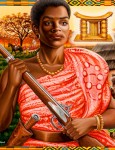
Asantewa, Yaa
ca. 1832–1921 Asante queen Yaa Asantewa was queen of the ASANTE town of Edweso, located in present-day GHANA. In 1900 she led a three-month siege against British troops in the Asante capital of Kumasi. The British had seized Kumasi four years earlier in an attempt to extend their control of the country, then known as the Gold Coast. They […]
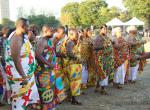
Asante
The Asante (Ashanti) are the largest and most powerful of a cluster of AKAN chiefdoms of southern GHANA and IVORY COAST. Originating around Lake Bosumtwi, the Asante migrated to the area around the town of Tafo in the early 1600s. Around 1700, Chief Osei Tutu made alliances with several surrounding kingdoms to form the Asante Union. Included in the union […]

Art
Each of the hundreds of different cultures in Africa has its own artistic traditions and its own ideas of what is beautiful or important. Variations in the style and form of artworks, as well as in the materials used to produce them, reflect such factors as a region's geography and climate, its social customs, and the available technology. Of […]

Architecture
From small mud huts to towering steel skyscrapers, African architecture is a mix of indigenous and foreign, old and new. The continent's diverse architecture reflects its varied climates and environments as well as the many different cultures and traditions of African peoples. Outside influences have played a major role as well. European designs and building methods can be seen in […]
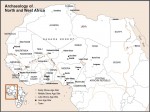
Archaeology and Prehistory
Africa's archaeological heritage is both ancient and rich. Several million years ago, the first ancestors of humans emerged in Africa. About 100,000 years ago, the first modern people appeared there as well. Since that time, a pageant has unfolded across the continent's vast and varied landscapes. Multitudes of cultures have emerged, peoples have migrated, empires have risen and fallen, and […]
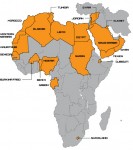
Arabs in Africa
Arabs have lived in Africa since at least the A.D. 600s, when people from the Arabian peninsula conquered EGYPT and LIBYA. Arabs eventually controlled much of North Africa. Arab culture—including the Arabic language and the practice of Islam—has been so widely adopted that Egypt, Libya, ALGERIA, TUNISIA, and MOROCCO are now considered to be part of the Arab world. Other […]
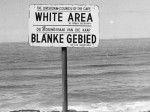
Apartheid
Apartheid, a system of racial segregation, was official government policy in the Republic of SOUTH AFRICA from 1948 to 1994. Under apartheid, South African blacks, Asians, and people of mixed ancestry called “Coloureds” were systematically separated from white society, deprived of any participation in government, and subjected to all forms of discrimination. The idea of white supremacy and racial discrimination […]
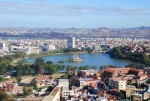
Antananarivo
Located on hills overlooking the Ikopa and Betsiboka Rivers, Antananarivo is the capital and largest city of MADAGASCAR. A king of the Merina people called Andrianjaka conquered the site in the early 1600s. Antananarivo, which means “city of a thousand,” was named for the guard of 1,000 men who defended it after Andrianjaka's conquest. By 1800 the Merina kingdoms established […]
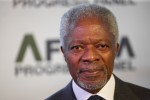
Annan, Kofi
1938– Ghanaian diplomat Elected Secretary-General of the United Nations (UN) in 1997, Kofi Annan is the first Secretary-General from Africa south of the Sahara. This diplomat from GHANA has worked for the UN since 1962, except for a brief period in the 1970s when he served as Ghana's director of tourism. Before embarking on his career in diplomacy, Annan […]
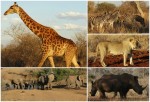
Animals, Domestic
Africans have been raising animals for their own use for thousands of years. Species of domesticated animals spread slowly southward through Africa, beginning around 3000 B.C. or earlier, and livestock herding became a traditional way of life across broad regions of the continent. Cattle, in particular, have played a central role in the social, economic, and religious lives of many […]
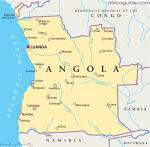
Republic of Angola
POPULATION: 22.14 million (2014) AREA: 481,351 sq. mi. (1,246,700 sq. km) LANGUAGES: Portuguese (official); Bantu languages (at least 55) NATIONAL CURRENCY: Kwanza PRINCIPAL RELIGIONS: Traditional 47%, Roman Catholic 38%, Protestant 15% CITIES: Luanda (capital), 2,677,000 (2000 est.); Lobito, Benguela, Malanje, Huambo, Cabinda, Lubango ANNUAL RAINFALL: Varies from 0 in southwestern coastal desert to 70 in. (1,780 mm) in extreme north ECONOMY: GDP $131.4 […]
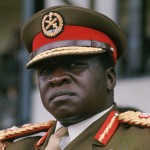
Amin Dada, Idi
ca. 1925–2003 Ugandan dictator Idi Amin Dada, a member of the Nubi people, ruled UGANDA from 1971 to 1979. Regarded as one of Africa's most ruthless leaders, Amin used murder as a political tool, and may have killed as many as 300,000 people during his reign. Enlisting in the military as a young man, Amin advanced rapidly. He was […]
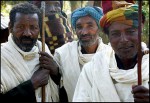
Amhara
The Amhara and the Tigrinya, indigenous peoples of ETHIOPIA, make up the group commonly known as Abyssinians. Both the Amhara and the Tigrinya are descendants of the founders of the ancient kingdom of AKSUM, and both speak Semitic languages. Originally based in the Ethiopian highlands, the Amhara gradually spread out to settle a large area of central Ethiopia. The Tigrinya […]
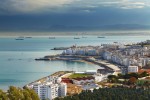
Algiers
Algiers, the capital of ALGERIA, is situated on a hillside overlooking the Mediterranean Sea. Home to 3.7 million people, it is one of the major cities of North Africa. The various sections of the old city show the different cultures that have influenced Algiers: French-style districts of wide boulevards alternate with Arab sections such as the Casbah, a neighborhood of […]

The Democratic and Popular Republic of Algeria
POPULATION: 39.93 million (2014) AREA: 919,595 sq. mi. (2,381,740 sq. km) LANGUAGES: Arabic (official); French, Berber dialects NATIONAL CURRENCY: Algerian dinar PRINCIPAL RELIGIONS: Muslim (Sunni) 99%, Christian and Jewish 1% CITIES: Algiers (capital), 4,200,000 (1999 est.); Oran, Constantine, Annaba, Batna ANNUAL RAINFALL: Varies from 30 in. (760 mm) along the coast to less than 4 in. (100 mm) in the Sahara ECONOMY: GDP […]
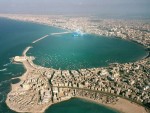
Alexandria
Located on a spit of land near the NILE RIVER delta, Alexandria is the second largest city in EGYPT and the country's main port. It was founded in 332 B.C. by Alexander the Great and quickly emerged as the leading city of the Mediterranean region. Renowned in the ancient world as a center of learning, Alexandria possessed the greatest […]
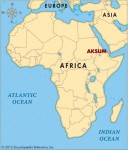
Aksum
Aksum was a kingdom located in present-day ERITREA and northern ETHIOPIA between about 200 B.C. and A.D. 650. Its capital city of Aksum sat on the western edge of the Eritrean highlands and was for several centuries a powerful and wealthy city. Historians take a particular interest in Aksum because its ruler, Ezana, converted to Christianity in 340, shortly […]
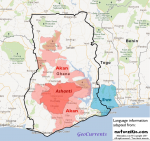
Akan Region
The Akan region, an area on the coast of West Africa's Gulf of Guinea, lies between the Bandama River in IVORY COAST and the Volta River in GHANA. During the 1600s, separate, competing states were formed in the northern and southern parts of the region. Before the 1400s, the region consisted of small communities of Akan clans. These people […]
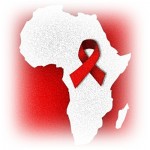
AIDS
AIDS (acquired immunodeficiency syndrome) is a fatal disorder affecting millions of people around the world. A leading cause of death among adults in sub-Saharan Africa, AIDS threatens to overwhelm many African nations and disrupt their social and economic development. AIDS is caused by HIV, a virus that attacks and destroys the body's immune system, making the infected person susceptible to […]

Agriculture
Agriculture plays a central role in the economies of nations throughout Africa, accounting for between 30 and 60 percent of all economic production. In many African nations, a majority of the people is engaged in farming, producing goods for domestic use and sometimes for export as well. Peasant and subsistence farming is the basic form of agriculture in most parts […]

Age and Aging
Age has two significant roles in traditional African cultures south of the Sahara. First, respect for age and for the elderly is a universal social ideal. Second, many societies are organized into groups by age, and membership in such groups helps define a person's sense of identity and place in the community. Recent social changes have somewhat weakened these values […]

Afrikaner Republics
The Afrikaner Republics were independent states established in the 1850s by Dutch colonists (Afrikaners) from British-ruled SOUTH AFRICA. The two longest-lived of the Afrikaner Republics were the Orange Free State, located between the Orange and Vaal Rivers, and the South African Republic (or Transvaal), between the Limpopo and Vaal Rivers. Each state had a strong central government, a judicial system […]
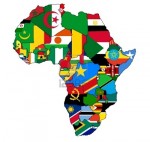
Africa, Study of
The study of Africa has a long history. People have been gathering information about the continent since ancient times. Early reports came mostly from travelers, explorers, missionaries, and merchants. Later, scholars in fields such as history, anthropology, geography, and the natural sciences began to conduct research there. Early Contact In ancient times, people living outside Africa knew little about it. […]

Addis Ababa
Addis Ababa, the capital and largest city in ETHIOPIA, is located on a high plateau in the center of the country. As home to the ORGANIZATION OF AFRICAN UNITY, an organization devoted to the interests of African states, Addis Ababa is also the diplomatic capital of Africa. Addis Ababa was founded in 1886 by Empress Taitu, the wife of Ethiopian […]

Achebe, Chinua
1930–2013 Nigerian writer Chinua Cinualomogu Achebe is a Nigerian writer whose novels often explore the difficult choices faced by Africans in modern life. Achebe's first novel, Things Fall Apart (1958), is considered a classic and is one of the most widely read works of African literature. The hero of the book commits suicide, unable to choose between radically different ways […]

Accra
Accra, the capital of GHANA, lies on the Gulf of Guinea on the Gold Coast in West Africa. It is the commercial, educational, governmental, and cultural center of Ghana, the hub of the country's road and rail system, and the site of the Kotoka International Airport. The population is over 1.6 million. The Portuguese, the first Europeans to visit […]
A Time Line of Africa
4 m.y.a. Australopithecines (early hominids) live in northern Rift Valley (Ethiopia, Kenya). 2.5 m.y.a. Early Stone Age; Homo habilis appears (Olduvai Gorge, Tanzania). 1.5 m.y.a.– 150,000 B.C. Homo erectus appears. 240,000– 40,000 B.C. Middle Stone Age. 80,000– 20,000 B.C. Late Stone Age. 20,000– 10,000 B.C. Farming introduced in lower Nile Valley. 10,000– 6000 B.C. Cattle domesticated in northern Africa. Millet and sorghum […]

Abidjan
With a population of about 2.8 million, Abidjan is the capital of IVORY COAST and one of the most important ports in French-speaking Africa. Situated along the edge of the Ebrie Lagoon on the Gulf of Guinea, its ocean port handles cargo for Ivory Coast, BURKINA FASO, MALI, and NIGER. Principal exports are cocoa, coffee, timber, and petroleum. Abidjan is […]
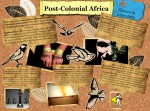
Postcolonial Africa
The phrase, 'postcolonial Africa' is literally a reference to the continent in the period after the end of European colonialism. However, the usage of the phrase in this sense is actually inadequate, because the autonomy of African states is so circumscribed and the legacies of colonialism so great as to lead many to question how far African countries can be considered […]

(Under)Developing Africa
1In the nineteenth-century, European geographers explored the African continent and then aided and abetted the colonial conquest. In the twentieth century, they mostly served the cause of establishing and maintaining colonial rule during the first half, and then worked in the cause that came to be called Africa's 'development', in combination with new generations of African professional geographers. This project of […]
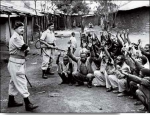
Representing Africa II: Exploration, Colonialism, and Imperialism
The earliest European human geographies of Africa were geographies of exploration and conquest, and from the era of the Atlantic slave trade through colonialism (a span of exploitation of Africa stretching from about 1450 into the 1960s and 1970s), they shaped the way much of the world views Africa. Through the Atlantic slave trade, an estimated 11.6 million Africans were forcibly […]
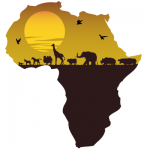
Representing Africa I: The Early Years
When non Africans talk about Africa today, it is often in the context of discussions of poverty, disease, warfare, or political instability. Africans are often represented as villains or victims. This was not at all the way the outside world's understanding of Africa began. Indeed, the whole notion of any generalized collective understanding of a landmass or entity called 'Africa' took […]
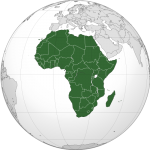
Introduction: Defining Africa
Africa is huge, diverse, and complex. Africa is identified as the world's second largest continent, covering more than 30 million square kilometers. Its diversity and complexity extend to its physical geography, climatology, and biogeography. Africa has many vast plateaus, five major basins, long stretches of fertile volcanic mountains not far from desolate wastelands below sea level, lakes that are among the world's […]
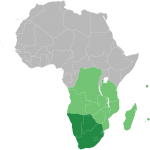
Southern African Development Community
IN 1980, NINE FRONTLINE southern African countries came together as the South African Development Coordination Conference (SADCC) to promote economic stability, increase interdependence, mitigate poverty, and battle the issue of apartheid in SOUTH AFRICA. In 1992, SADCC became the Southern African Development Community (SADC). By 1997, SADC had grown to 14 nations, including South Africa, where apartheid had been abolished. The geography of the […]
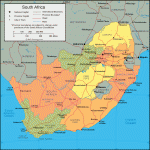
South Africa
Area 470,886 square mi (1,219,912 square km) Capital Pretoria Population 54.00 million (2014) Highest Point 11,181 ft (3,408 m) Lowest Point 0 m GDP $350.1 billion (2014) Primary Natural Resources gold, chromium, diamonds, platinum. OFFICIALLY called the Republic of South Africa, the country is a semiarid subtropical state located on the southernmost tip of Africa. […]
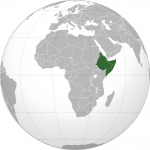
Horn of Africa
THE PENINSULA OF NORTHEAST Africa is called the Horn of Africa. It lies opposite of the southern Arabian Peninsula. This area is also known as the Somali Peninsula because within it lies the countries of SOMALIA and eastern ETHIOPIA. It is the easternmost extension of the African continent separating the Gulf of Aden from the INDIAN […]
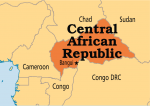
Central African Republic
Area 240,535 square mi (622,984 square km) Population 4.709 million (2014) Capital Banqui Highest Point 4,658 ft (1,420 m) Lowest Point 1,099 ft (335 m) GDP $1.783 billion (2014) Primary Natural Resources diamonds, uranium, gold. DEEP IN THE HEART of the African continent, the LANDLOCKED Central African Republic is on a heavily forested plateau about […]